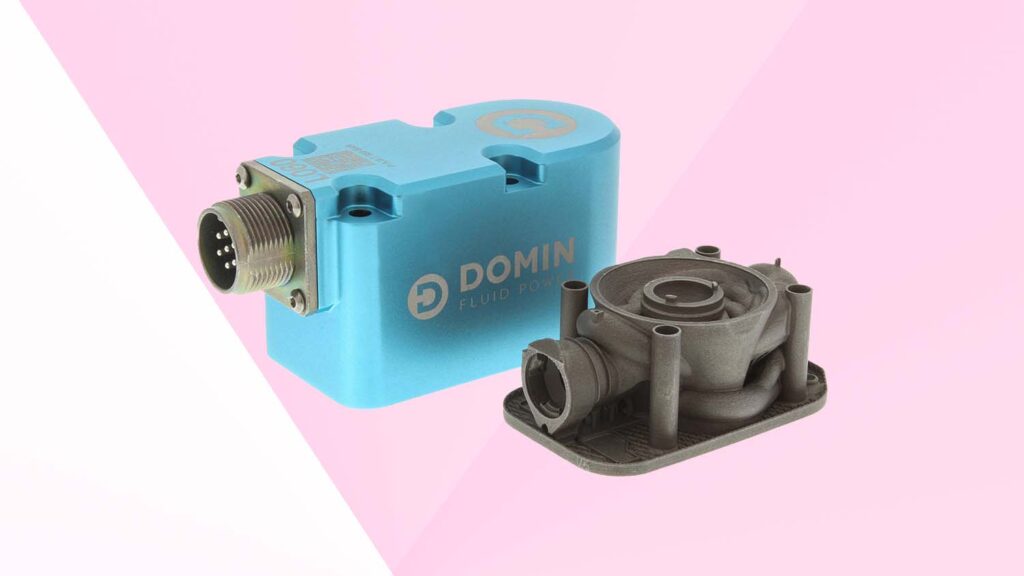Domin’s latest state-of-the-art servo valves are capable of drastically reducing CO2 emissions in the fluid power industry, an efficiency granted through the company’s adoption of Design for Additive Manufacturing (DfAM) and use of Renishaw metals 3D Printing.
Based in Bristol, UK, Domin was founded in 2012, aiming to disrupt the fluid power industry by improving the range of technology available and increasing sustainability.
Domin’s electro-hydraulic valves are the product of years of research and development into 3D printing, and are designed for the most demanding servo applications.
Smaller and lighter than previous models, the high-performance products are easy to configure online, offer good power density and dynamic performance thanks to the company’s adoption of DfAM.
CEO Marcus Pont sees this product range, as the first step in creating change in fluid power systems across the UK, stating that every valve is capable of saving over one tonne of CO2 per year compared with alternative products.
For Domin, additive manufacturing was the missing piece of the puzzle, and it turned to this technology to design its product range.
By using the Renishaw RenAM 500Q, a four-laser AM system designed for serial production applications, Domin says it was able to increase its productivity, achieve design freedom and reduce cost per part in such a way that 3D printing presented a compelling case for use in hydraulic manufacturing.
“There is a pressing reason disruption is needed — sustainability,” says Pont. “In the US, the fluid power sector alone wastes about 300 million tonnes of CO2 per year through system inefficiencies.
“To put this into context, this is about the same as the total output for all CO2 emissions in the UK. More efficient technology could make a real difference to global emissions.”
Domin is now setting out to showcase how engineering start-ups can drive value for UK industry.
“Britain is home to some of the world’s leading engineering businesses,” Pont continued. “However, most of the UK’s big engineering businesses were started in the 20th Century. It’s time for British business to become more ambitious.
“Combining metal additive manufacturing with other technologies revolutionises what can be achieved technically — it could generate real value for British industry.”
Long term, Domin plans to start manufacturing and selling complete systems. It is already working on some high-profile projects, which Pont says includes one to develop a new suspension system with Aston Martin Lagonda.






